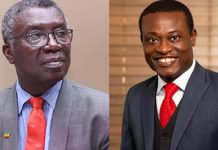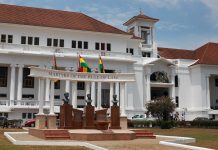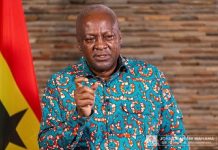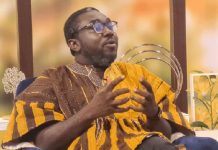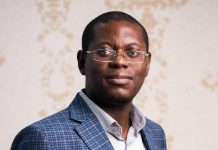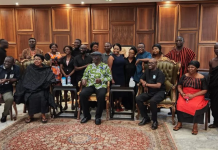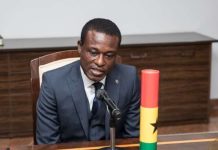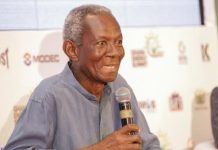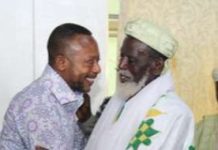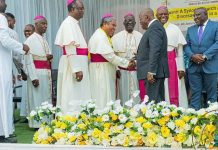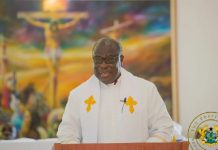On 6 January, Africa lost another of its great thinkers when Ghana’s Professor Kwasi Wiredu died at the age of 90. He was among a very small number who made a major mark in the field of philosophy – a subject considered too advanced for Africans during the colonial days. He succeeded in lifting African traditional thought to the highest world levels during an outstanding career. Cameron Duodu pays tribute to a great son of Africa.
Kwasi Wiredu was one of a duo of brilliant philosophers who impressed President Kwame Nkrumah so much that he sent them to Germany to research the works of William Anton Amo (1703–c. 1759), a Ghanaian who became a well-known philosopher in Germany in the 18th century. The other half of the duo was William Abraham, the first African to be elected a Fellow of All Souls College, Oxford University, where he studied for a B.Phil.
Abraham and Wiredu were classmates at Adisadel College, Cape Coast, and went to Oxford together after graduating from the University of Ghana, Legon.
Although outsiders assumed they were rivals, they remained intimate friends throughout their student days and continued their friendship when they both returned home to lecture in philosophy at the University of Ghana.
Eventually, they both ended up based in the US, where they became the touchstone of Africa’s philosophical prowess and became Visiting Professors at some of the most prestigious educational institutions in the world.
Kwasi Wiredu was born in Kumasi, Ghana, in 1931 and taught for 23 years at the University of Ghana – becoming head of its Department of Philosophy – before he took up an appointment as Professor of Philosophy at the University of South Florida.
His publications include Philosophy and an African Culture (1980) and Cultural Universals and Particulars: An African Perspective (1996). No one appreciated his brilliance more than his friend, William Abraham, who said of him: “I do not know anyone, in person or by repute, whose thinking is as penetrating or as comprehensive. He is the only African named among the world’s greatest ‘One Hundred Philosophers’.”
Prof. Abraham added: “Let it be also said that I personally never met a more upright person. If this man thought that a course of action would be wrong, he would be simply incapable of pursuing it. If you [had] him for a friend, you [had] a friend for life… I have never heard anyone, or heard of anyone, who had anything ill to say of him. He became a ‘philosopher’s philosopher’, as Stuart Hampshire was to describe him in graduate school at Oxford.” (Sir Stuart Newton Hampshire FBA was an English philosopher, literary critic and university administrator.)
I met Wiredu for the first time in Kumasi in the early 1960s, whilst I was the editor of the Ghana edition of Drum magazine. I had gone there to interview the most popular guitarist in Ghana at the time, Kwabena Onyina, ‘King of High-life’. Onyina’s music was distinct in that his chords were complex and jazzy, while he sang in a beautiful tenor. But more than that, he eloquently used well-known Akan proverbs to make his lyrics memorable. Apparently, Onyina discussed life’s problems with – Wiredu! And he inspired Onyina to compose lyrics that comforted those who needed to shore up their psyches!
Elevating African philosophy
Wiredu’s main achievement in life was to help get African philosophy (once disregarded as ‘inferior’ or ‘non-existent’) recognised worldwide as the equivalent of all other philosophies. Professor Martin Ajei of the University of Ghana summed up Wiredu’s work as follows:
“Between the 1970s and 1990s, technical debates on the nature of African philosophy, as a sub-discipline of philosophy, were rife. Two questions that decisively shaped these discussions were: what is the distinguishing feature of an African philosophical work, and who counts as an African philosopher? Two central points of view on these questions emerged – the ‘universalist’ and ‘particularist’….
“Particularists were deemed to consider collective systems of thought, particularly in traditional African cultural settings, as essential to African philosophy; whereas universalists considered philosophy as a practice that has the same methodology and questions everywhere, and insisted African philosophy is an activity that conforms to such universal philosophical practice.
“Kwasi Wiredu was pivotal in discussing these questions, and is usually considered to be a universalist. He prescribed for African philosophy an orientation that involves constructive self-criticism; i.e., examination of the intellectual foundations of traditional life, to identify the inelegant features of traditional thought and practice (inelegant in the sense of standing in the way of human wellbeing: of their being anachronistic, superstitious or authoritarian). [He advocated the charting of] new conceptual directions as guides for addressing these features in the contemporary world.
“But his was not a simplistic version of universalism that adopts as universally applicable, without due deliberation, customs of thought and practice that have morphed into hegemonic conceptions and values, because of the course of intellectual history.
“Without under-estimating the importance of challenging the pejorative assessments of indigenous African thought in philosophical history, he was more interested in evaluating the value that such thought can potentially have for constructing an African future.
“He elaborated an approach, conceptual decolonisation, for this constructive work, to guide African philosophers as they strive to affirm themselves as generators of knowledge in the social, scientific and humanistic disciplines, and as educators of a new generation of citizens.
“Wiredu’s work spans several key areas of philosophy: logic, metaphysics, epistemology, ethics, political philosophy and meta-philosophical considerations. He argued across millennia, with his contemporaries, and he will continue to argue with future scholars. Hence, he will not be forgotten in the history of philosophy.”
African folk thought
This is how Wiredu defined the “decolonisation of African philosophy” in a paper entitled: “How Not to Compare African Traditional Thought with Western Thought”:
“The African philosopher has good reason to study African folk thought. Africans are a much oppressed and disparaged people; some foreigners have not even conceded that Africans, as a traditional people, were capable of a coherent worldview.
“Many colonial anthropologists sought to render the actions and attitudes of our forefathers intelligible to their colonial rulers, so as to facilitate governance. While some brilliant insights resulted, there were misinterpretations and factual errors as well. Africans cannot leave the task of correction to foreign researchers alone.
“Moreover, there are, particularly in the field of morality, conceptions not based on superstition; the Westerner may well have something to learn from them. The exposition of these aspects of African traditional thought especially befits the contemporary African philosopher.
“But African philosophers should approach this material critically: all peoples who have made any breakthrough in the quest for modernisation, have done so by going beyond folk thinking. Sifting through the elements of our traditional thought and culture will require a good measure of analytical circumspection. Otherwise, we might exchange the good, as well as the bad, in our traditional ways of life, for dubious cultural imports.”
How very true as we ask ourselves if we have indeed exchanged the good and bad of our traditional way of life for dubious cultural imports. Wiredu the philosopher is gone but his ideas live on and are finding expression, often in faraway places as the search for the unique African way of life and thought continues.





